The Casimir Pulaski Foundation is an independent, non-partisan think-tank specializing in foreign policy and international security. The Pulaski Foundation provides analyses that describe and explain international developments, identify trends in international environment, and contain possible recommendations and solutions for government decision makers and private sector managers to implement.
The Foundation concentrates its research on two subjects: transatlantic relations and Russia and the post-Soviet sphere. It focuses primarily on security, both in traditional and non-military dimensions, as well as political changes and economic trends that may have consequences for Poland and the European Union. The Casimir Pulaski Foundation is composed of over 60 experts from various fields. It publishes the Pulaski Policy Papers, the Pulaski Report, and the Pulaski Commentaries. The Foundation experts cooperate with media on a regular basis.
Once a year, the Casimir Pulaski Foundation gives the Knight of Freedom Award to an outstanding person who has promoted the values represented by General Casimir Pulaski: freedom, justice, and democracy. Prizewinners include: Professor Władysław Bartoszewski, Professor Norman Davies, Alaksandar Milinkiewicz, President Lech Wałęsa, President Aleksander Kwaśniewski, President Valdas Adamkus, Bernard Kouchner, and Richard Lugar, President Vaira Vīķe-Freiberga, President Mikheil Saakashvili, Radek Sikorski i Carl Bildt and President Toomas Hendrik Ilves.
One of the leading projects in the field of international security is the annual Warsaw Security Forum, organized in partnership with the Polish and foreign partners and institutions, which is bringing together policymakers from European Union and NATO countries to discuss major security challenges.
Casimir Pulaski Foundation received an award “Think Tank Awards 2017” in category “Best EU International Affairs think tank”, awarded by Prospect magazine.
The Casimir Pulaski Foundation has a partnership status with the Council of Europe.
WIIS Poland was launched in November 2017 during the international conference Warsaw Security Poland as the newest affiliate of the WIIS Global. The organization was created within the Casimir Pulaski Foundation – independent and apolitical think tank, which focuses on issues from fields of foreign policy and international security. WIIS Poland promotes women in Poland and Eastern Europe, who are invested in the peace processes – peacemaking and peacekeeping – and international security. The national chapter of WIIS in Poland is the first step to enhancing the outreach of the network of the whole organization and to promoting Polish experts globally.
The inauguration meeting of WIIS Poland took place early in 2018 with the patronage of Secretary of State Anna Maria Anders, and allowed to present and discuss the plans for the first year of its activities. During the meeting, interested parties had a chance to register for membership as WIIS Poland and gain access not only to the WIIS Global network but also to other opportunities offered by the organization – i.a. attending networking meetings, seminars and workshops, and mentoring programs.
Patrycja Kubiak

Patrycja Kubiak graduated from the Institute of Journalism, Media, and Communication of the Jagiellonian University (Cracow, Poland). She works in the private sector, managing coworking space at one of leading Polish real estate companies. She is interested in diplomacy and promotion of Poland abroad. Patrycja is a journalist, activist, and ambassador of women’s entrepreneurship and business.
STEERING COMMITTEE
Michal Baranowski
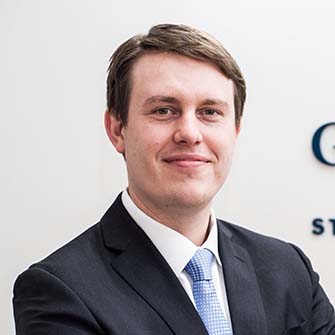
Michał Baranowski is the director of GMF’s Warsaw office, where he focuses on transatlantic relations, U.S. foreign policy, and the relations between the United States and Central and Eastern Europe (CEE). Prior to helping launch the Warsaw office, he served at GMF’s headquarters in Washington, DC, where he developed GMF’s programming in Poland and CEE. Before that posting, Baranowski worked in GMF’s Brussels office, where he focused on EU and U.S. policy toward Ukraine and Georgia, and where he also established the Young Transatlantic Network.
He has published in Gazeta Wyborcza, Rzeczpospolita, the Warsaw Business Journal, the Kyiv Post, and GMF’s Transatlantic Take series. He is a member of the advisory council of the Institute for Western Affairs in Poznań, Poland. He holds a master’s of European public affairs from Maastricht University, and has studied at Mercer University in the United States and the University of Oxford.
Dr Małgorzata Bonikowska
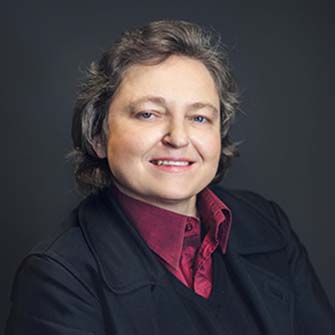
Małgorzata Bonikowska has a Ph.D. in humanities and she specializes in international relations (with particular emphasis on the European Union) and communication in public institutions. EU expert, government consultant and academic fellow, graduated from the Warsaw University (Italian studies), University of Paris-Sorbonne (history and political sciences) and the PWST (State College of Theatre) in culture history. Alumnus of two Ph.D. programs: in Poland (Polish Academy of Sciences) and abroad (SSSS, Italy), dr Bonikowska completed a specialization program at the School of International and Public Affairs (SIPA) at the Columbia University in New York (Fulbright Scholarship). She is the author of more than 150 publications and tutor of over 100 BA, MA and post-graduated thesis.
Wojciech Dzięgiel
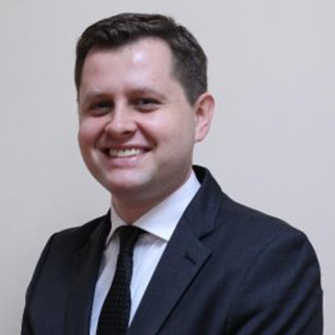
Government official, long-term employee of the Ministry of Foreign Affairs as a Consular Officer. Lawyer specialising in Public International Law. Coordinator of the Warsaw Security Forum 2015 Organising Committee.
Dr hab. Aleksandra Gasztold
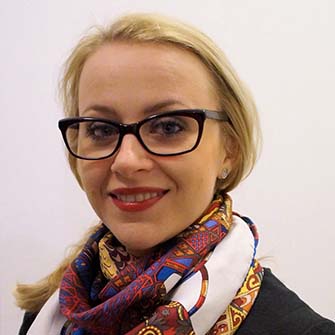
Adiunkt w Katedrze Nauk o Bezpieczeństwie. Prowadzi badania nad terroryzmem i rolą płci w badaniach nad bezpieczeństwem. Stypendystka Fundacji Herberta Quandta na Uniwersytecie w Konstancji (2001-2002), DAAD na Uniwersytecie Christiana Albrechta w Kilonii (2004), Uniwersytetu w Konstancji (2007, 2010, 2015, 2016), Uniwersytetu Jana Gutenberga w Moguncji (2008), Uniwersytetu Indiana w Bloomington (2013) i Uniwersytetu Wiedeńskiego (2015). Opiekun Studenckiego Koła Naukowego „Bezpieczeństwo Wewnętrzne”, redaktor naczelna czasopisma naukowego „Securo”. Ekspert społeczny Rządowego Centrum Bezpieczeństwa i Ośrodka Analiz Politologicznych UW. Członkini Women in International Security (WIIS Poland).
Dr Beata Górka-Winter
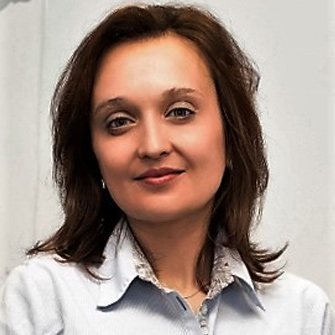
Political scientist, expert on international security and defence issues. Since 2000 a research fellow and program coordinator on international security in the Polish Institute of International Affairs, a leading Polish think tank. Author or co-author of numerous publications with a special focus on security sector reform (SSR), the EU and NATO policies, peace-building, international military operations, conflict resolution, missile defence, defence technologies, security policies of different countries. An advisor on security and defence policy in cooperation with the civilian and military agencies from different countries (the CEE region, the U.S., Afghanistan, the Southern Caucasus). Member of the expert group on SSR at the „Security Sector Reform – Centre of Excellence in Southern Caucasus” led by the International Visegrad Fund. Member of the group advising the Polish MoD in drafting security strategy of Poland (2013). OSCE election observer: Kosovo (2001), Ukraine (2006). Lecturer at the University of Warsaw, European Security and Defence College, AFiB Vistula, KSAP and the Diplomatic Academy. Beata Górka-Winter graduated from the University of Warsaw, Faculty of Journalism and Political Science and National Security Faculty. She holds a Ph.D. from the Jagiellonian University. She also completed a Program on Security, Stability, Transition and Reconstruction (SSTAR) in George C. Marshall European Center for Security Studies and participated in the Senior Course on Security Policy in Northern Europe led by the Swedish National Defence College.
Dr hab. Katarzyna Pisarska
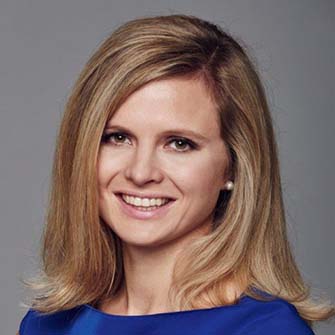
Dr. Katarzyna Pisarska is the Founder and Director of the European Academy of Diplomacy in Warsaw, Poland and the Visegrad School of Political Studies run in cooperation with the Council of Europe. She is also the Program Director of the Warsaw Security Forum and a Young Global Leader at the World Economic Forum in Davos. In the past, she has served as adviser to the Foreign Affairs Committee of the Polish Parliament, to the Office of National Security at the Chancellery of the President of the Republic of Poland; and continues to work as regular foreign affairs broadcaster in Polish and international media.
In addition to her leadership experience Dr. Pisarska pursues a career in academia. She is an Assistant Professor at the Warsaw School of Economics, a Senior Fellow at the Warsaw-based Casimir Pulaski Foundation and a Visiting Professor at the Azerbaijan Diplomatic Academy in Baku. Previously, Dr. Pisarska was a Fulbright Visiting Fellow at Harvard University (2007), a Visiting Scholar at Johns Hopkins University’s School of Advanced International Studies (2010), at the University of Oslo (2012) and at the Australian National University (2015). She specializes in EU foreign policy, Eastern Partnership, EU-Russia relations and public diplomacy.
In 2013 Dr. Pisarska was named “99 under 33” most influential world foreign policy leader by the Diplomatic Courier in Washington D.C
